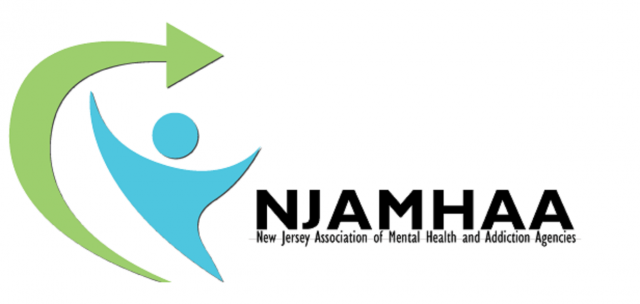Yesterday, NJAMHAA staff and several partners testified before the Opioid Recovery and Remediation Fund Advisory Council, reinforcing the need for education and increased access to the full continuum of prevention, harm reduction and treatment services, as well as a statewide health information exchange (HIE).
"An HIE is critically important for behavioral health services in particular. For persons struggling with addiction and mental health problems, an HIE provides healthcare providers with the complete information available in order to provide holistic, integrated, and coordinated care," explained James McGreevey, Executive Director of New Jersey Reentry Corporation. "Without an HIE, behavioral healthcare providers will not be able to access complete medical records in a timely manner, and the ability to make a proper healthcare decision will be compromised."
Shauna Moses, NJAMHAA's Vice President of Public Affairs and Member Services, reinforced the need for an HIE; investment to ensure that contracts and fee-for-service reimbursement rates fully cover the cost of care; and significant funding to expand and strengthen the behavioral healthcare workforce. "Specifically, some of the funds should be invested into achieving workforce development and retention goals. These investments should include expanded efforts to train, recruit, pay and retain certified recovery specialists and peer support specialists," she stated.
Moses and NJAMHAA Board members Bob Budsock, MS, LCADC, President and CEO of Integrity House, and Erika Kerber, Esq., President and Executive Director of Community Health Law Project, stressed that significant funding must be invested in capital improvements in treatment facilities and services to address social determinants of health.
"Thousands of people traverse our physical facilities every single day - to meet with their physicians and therapists, attend groups, and even to sleep. We have an obligation to ensure that these facilities are fully suited to the life-saving work that we do," Budsock said. Regarding housing, one of the social determinants of health, Budsock stated, "Far too many people completing treatment are forced to enter the shelter system or return to environments where the social circumstances that contributed to their substance use remain unchanged. The opioid settlement funds provide a unique opportunity for providers to expand the continuum of care for individuals who require long-term transitional assistance, such as sober housing, following the initial phases of care."
"The legal areas of focus with this population would include, but is not limited to, housing issues, income maintenance and supports, disability and insurance benefits, government benefits, access to healthcare, food security, family issues such as domestic violence and child support, consumer issues such as bankruptcy and debt release, and prisoner reentry issues such as expungement of criminal records and drivers' license reinstatement," Kerber said. Funding is also needed to provide legal services to address criminal justice and civic matters. "In fact, the National Institute on Drug Abuse has identified legal services as a necessary component of a comprehensive treatment program because of the variety of legal problems that drug-using individuals are likely to experience.," she stressed.
A third Board Member, Susan Loughery, MBA, Associate Executive Director, Catholic Charities - Diocese of Trenton and NJAMHAA Board Immediate Past President, also recommended investment in housing, as well as other social determinants of health such as transportation, medical and employment services. Loughery identified additional priority areas including "funding for workforce salary enhancements for direct care treatment staff such as prescribers, clinicians and nurses in geographically underserved areas" and "expansion of substance use disorder treatment services for youth and adolescents."
In addition to further reinforcing the need for housing, including sober living residences, and transportation, Barbara A. Cashin CSW, LCADC, Director of Clinical Business Development at Discovery Institute, a new NJAMHAA member, underscored the need for "ongoing outpatient care, easily accessible medication-assisted treatment and medical care."
Cashin also endorsed recommendations from Pyramid Healthcare, another NJAMHAA member, to increase funding and reimbursement for detox and residential treatment.
"Currently, New Jersey Medicaid reimbursement rates for levels 3.7 (short-term residential) and 3.5 (long-term residential) are well below market comparisons. The current rates for these services in New Jersey are approximately 35% lower than other markets," said Collan Rosier, Pyramid's Vice President of Government Relations. "In addition, New Jersey costs for major expense categories such as professional staff and insurance coverage are approximately 10% higher than surrounding states and markets. New Jersey Medicaid reimbursement rates for residential services have remained essentially unchanged for years while surrounding states are enacting substantive increases."
In addition, several individuals at this listening session, including NJAMHAA member Heather Simms, Deputy Director of Peer Advocacy and Community Initiatives at Collaborative Support Programs of New Jersey, highlighted the effectiveness of harm reduction services and the need for increased funding to create more centers throughout the state that provide these life-saving services.
Additional members who testified are David DeCamp, Director, Recovery Services and Patient Navigator, Mercer County Opioid Overdose Recovery Program, Mercer Council on Alcoholism and Drug Addiction, and Cindymarie Dix, Chair of the New Jersey Coalition for Addiction Recovery Support.
DeCamp reinforced that integrated treatment processes must be updated and evidence-based practices, such as Wellness and Recovery Action Plans and Community Reinforcement and Family Training, should be encouraged. Decamp said in his testimony, "Clearly one of the key uses of Opioid Settlement Funds should be to educate, encourage, and even incentivize the modernization and standardization of hospital ED Best Practices and Procedures for OUD patients. This will at least give clients a fighting chance at initiating a recovery process, supported by all the other ready and willing treatment and community resources available to help them."
Dix recommended that some funds be invested into creating a statewide recovery community organization and more community peer recovery centers.
NJAMHAA appreciates and applauds members for testifying, and encourages everyone to advocate at every opportunity. Please click here for information about joining NJAMHAA's Partners in Advocacy program.



